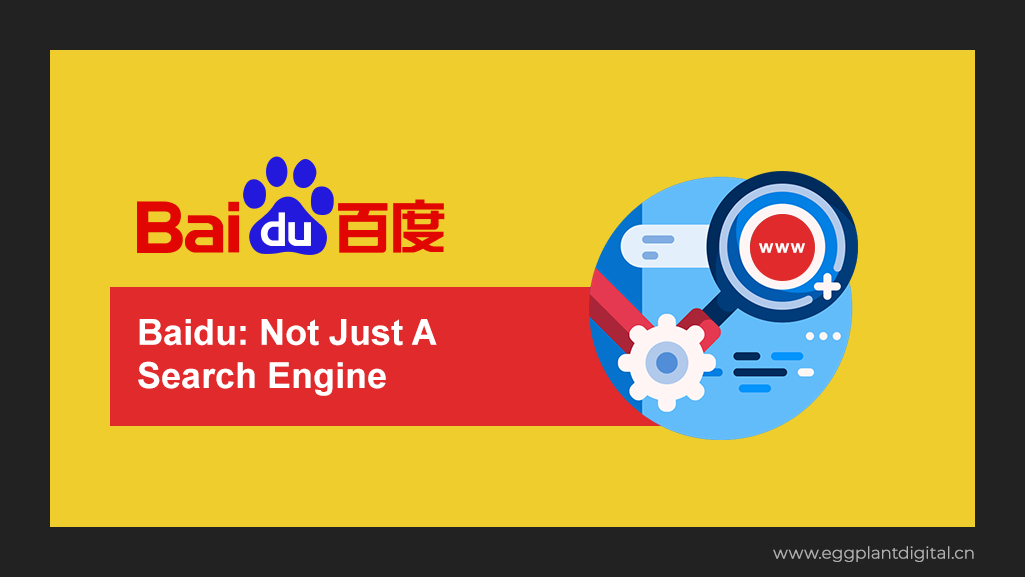If you read the first part of our series, Baidu SEO for newcomers, we explored…
How to use Baidu SEO For Newcomers
If you’re familiar with the Chinese internet, you will know that Google is a no-go for businesses trying to forge a digital presence. With Google being blocked in China since 2010, it left space for another search engine to take pole position – and Baidu does exactly that.
Launched on January 1, 2000, with the goal of becoming an established search engine specifically for the Chinese language, Baidu is the search engine king in China.
Baidu: Not Just A Search Engine
Thanks to its many features, including Baidu Maps (百度地图), Baidu News (百度新闻), Baidu Baike – the online encyclopedia (百度百科), and many more, including voice and image search, Baidu has a nearly 70% market share in China. This makes it an essential platform if you want to target the Chinese market. Baidu’s search engine algorithm is different from other search engines. It’s important to get clear on Baidu’s details if you want to market successfully to China. Optimize your website accordingly. That’s why we chose to cover how to use Baidu SEO for newcomers, to give you a quick intro without too much confusion.
Understanding Baidu’s ranking algorithm
Baidu’s ranking algorithm is a complex system that takes into account a number of factors when determining the ranking of websites in its search results. If you are familiar with SEO, some of this will resonate. The main factors include:
- Keyword research: The keywords that you use on your website are one of the most important factors in determining your ranking in Baidu. Make sure to choose keywords that are relevant to your business and that people are actually searching for.
- On-page optimisation: The content on your website should be high-quality and relevant to your target audience. Optimize your title tags, meta descriptions, and content for your target keywords.
- Off-page optimisation: Building backlinks to your website from other high-quality websites is another important factor in Baidu’s ranking algorithm. The more backlinks you have, the higher your ranking will be.
- User engagement: Baidu also takes into account how users interact with your website when determining your ranking. This includes factors such as click-through rate, time on page, and bounce rate.
- Website speed: The speed of your website when determining your ranking is another ranking factor. A slow-loading website will be penalised in the search results.
- Mobile-friendliness: Baidu also considers how mobile-friendly your website is. A website that is not mobile-friendly will not perform so well in the search results.
Keyword research for Baidu
When you conduct keyword research for Baidu, it’s important to use a tool that is specifically designed for the Chinese market. Baidu Index (百度指数) is the tool you need. Baidu’s equivalent to Google Keyword Planner, Baidu Index is a valuable tool for anyone who wants to optimise their website for the Chinese market.
It can help you find the right keywords to target, estimate the potential traffic that your website could receive, and assess the competition for those keywords.
Key features of Baidu Index include:
- Keyword research: Baidu Index can be used to find keywords and phrases that are relevant to your products and services that businesses and consumers in China are currently searching for.
- Search volume: Baidu Index provides information on the search volume of keywords and phrases. This information can be used to estimate the potential traffic that your website could receive if you target those keywords.
- Competition: Baidu Index also provides information on keyword competition. This information can be used to assess the difficulty of ranking for those keywords.
- Related keywords: Additionally, Baidu Index provides information on related keywords and phrases. This information can be used to expand your keyword list and improve your search engine optimisation.
Tips for using Baidu Index:
- Start with a broad keyword: When you start your keyword research, it’s helpful to start with a broad keyword that is related to your business. For example, if you sell shoes, you might start with the keyword “鞋子” (“xiezi”).
- Use the search volume data to refine your keyword list: Once you have a list of broad keywords, you can use the search volume data to refine your list. Focus on keywords that have a high search volume and low competition.
- Use the related keywords data feature to expand your keyword list: This is a great way to find new keywords that you might not have thought of before to increase visibility via content like articles.
On-page/off-page optimization for Baidu
Tips for optimising web pages for Baidu:
- Optimize your title tags: Your title tag is one of the most important factors in determining how your page will rank in Baidu. Make sure your title tag is relevant to your content, and includes your target keywords.
- Optimize your meta descriptions: Your meta description is a short summary of your page’s content. It’s not used by Baidu to rank your page, but it can influence click-through rates (CTRs). Make sure your meta description is accurate and enticing, and includes your target keywords.
- Optimize your content: Your content is the most important factor in determining how your page will rank in Baidu. Make sure your content is high-quality, relevant to your target audience, and includes your target keywords.
- Use structured data: Structured data can help Baidu understand the content of your page. Use structured data to mark up your title, author, date, and other important information.
- Optimize your images: Images can help to improve the user experience of your page, and they can also help you to rank higher in Baidu. Make sure your images are relevant to your content, and include descriptive alt text.
Create high-quality backlinks for Baidu with off-page optimisation:
- Engage in guest posting on relevant websites: By writing valuable content for other websites in your industry, you can secure backlinks to your own website, enhancing its authority and visibility.
- Participate in blog commenting: Leave insightful comments on industry-related blogs, including a link to your website. This not only fosters engagement but also helps generate backlinks.
- Harness the power of infographics: Create visually appealing infographics that present valuable information. Share them on relevant websites, ensuring you include a link back to your own website.
How Do I Progress With My China Marketing Mix?
Baidu SEO is an essential part of any business that wants to target the Chinese market. Hopefully, you now have a better idea of how you can use Baidu SEO to benefit your business. Baidu is all in Mandarin Chinese, so you need a good level in the language in order to get things right. In our next Baidu article, we further delve into more specific Baidu SEO, including how to perform mobile optimisation for Baidu.
One thing you should probably consider next, is how social media is being used for research by consumers looking for foreign brands. Our recent article on social media marketing in China deals with this quickly, but with the depth needed to make good decisions.
If you have a specific question, drop us an email with your questions. We eat, sleep and breathe China marketing, so we’d love to hear from you. Contact us here!








This Post Has 0 Comments